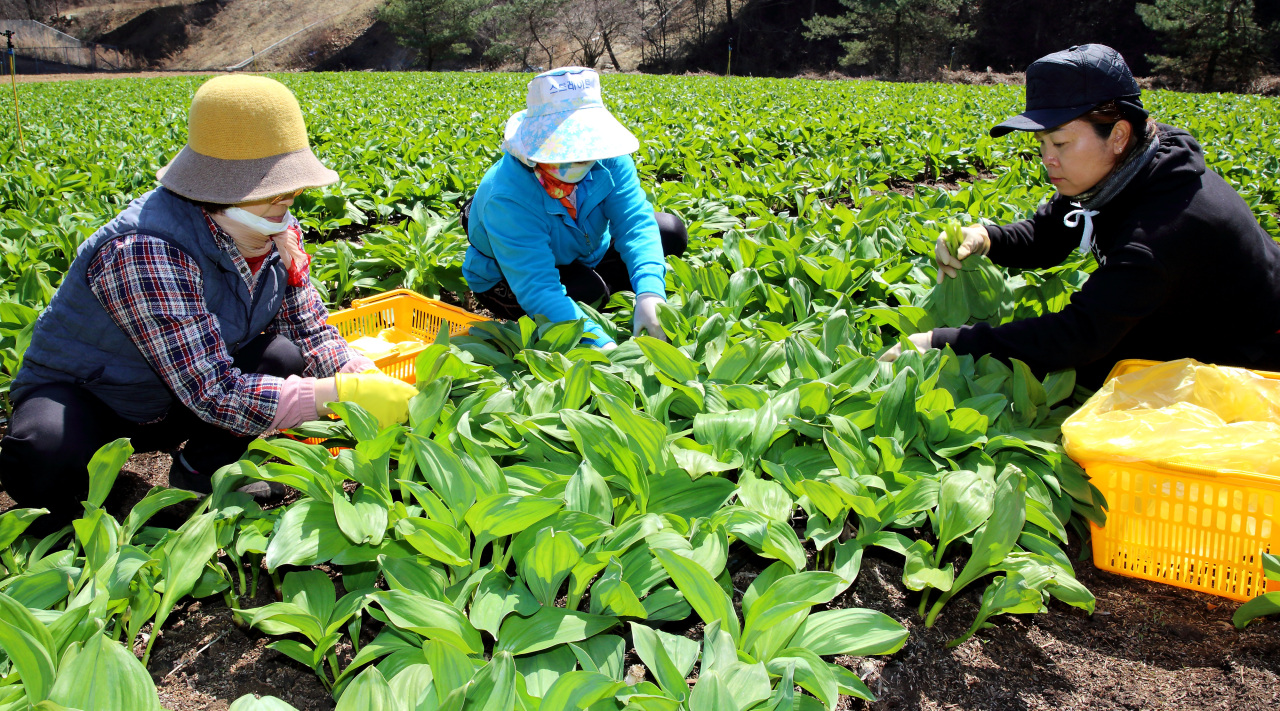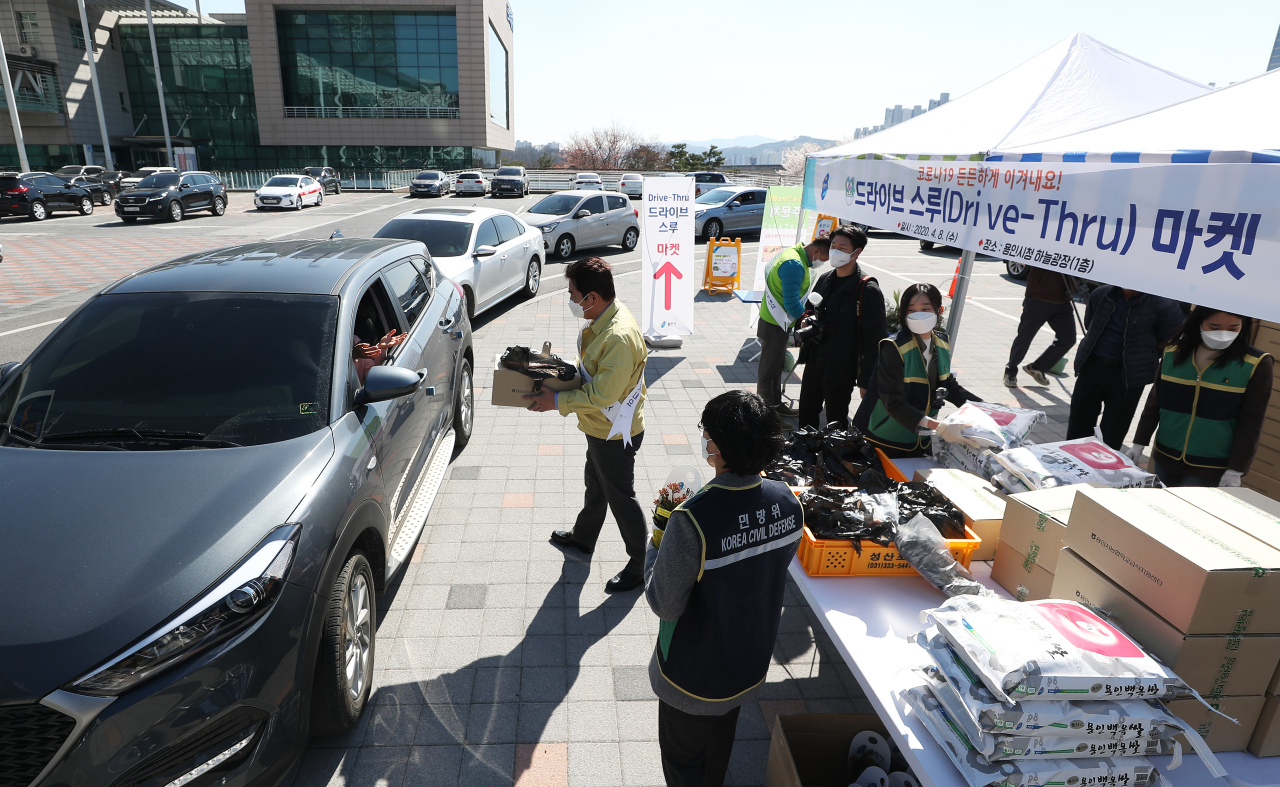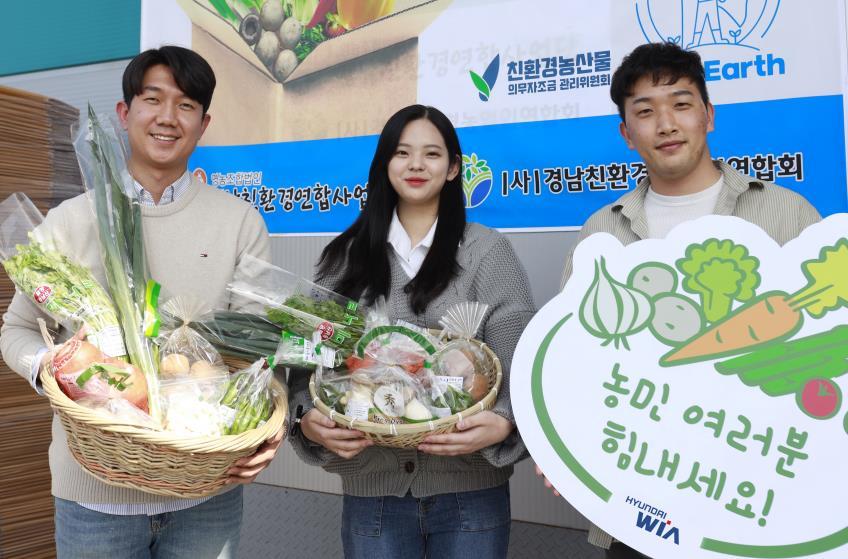[Weekender] Solidarity at time of crisis
Consumers, landlords, celebrities and YouTubers reach out to help those hit harder by coronavirus outbreak
By Park Han-naPublished : April 11, 2020 - 10:20

The novel coronavirus is forcing people around the world to keep their distance physically, but that isn’t stopping them from standing united in the fight against the global pandemic.
As neighbors, landlords or consumers, many people in Korea are reaching out to those hit harder by the COVID-19 outbreak.
Youngsters have initiated a “good consumer movement” through social media platforms such as Instagram.
When visiting a regular haunt -- whether it’s a cafe, hair salon or restaurant -- they pay for their next visit in advance to ensure the business has a stable cash flow.
Sharing images of their receipts under the hashtag #goodconsumer, they encourage others to join in.
Koh Mi-jung, a 32-year-old office worker, paid an extra 30,000 won ($24.60) when she got her hair dyed at a salon in Seoul over the weekend. She plans to visit again in a couple of months, and has already paid for the appointment in advance.
“The hairstylist told me that the shop’s revenue has been halved. Hearing that the landlord of the salon had reduced the rent for this month made me decide to join the movement,” she said.

Flower boutiques and rice cake shops also saw their sales nearly halved. Mom and pop stores are on the brink of going out of business during the prolonged social distancing campaign.
According to the Korea Economic Research Institute, restaurant sales fell 65 percent year-on-year in February and March.
To boost domestic consumption, the government decided Wednesday to chip in 90 billion won in advance payments to businesses in the industries of food service, air travel, exhibitions and conventions that will provide services for future government functions.
Another emerging trend is purchasing fresh fruits and vegetables directly from farms.
Taking a cue from Korea’s drive-thru virus-testing centers, which are providing the fastest and most extensive COVID-19 tests in the world, farmers are adopting similar methods to sell their products.
Since Pohang, a North Gyeongsang Province city hit hard by the virus, started selling fresh fish, spinach and mushrooms at a drive-thru station within a parking lot on March 14, consumers and farmers have welcomed the new sales model as a way to reduce potential exposure to the virus.
Provincial governments are helping struggling farmers take on direct grower-to-consumer relations through one-off farm boxes.
Sun Kwon-soo, who runs a strawberry farm in Seosan, South Chungcheong Province, was relieved when a drive-thru market was established there. COVID-19 has disrupted his key export markets, and he is still feeling the effects.
“As I’ve been exporting all my strawberries to the United States and Hong Kong, I was devastated when I had to dump several hundred kilograms of strawberries. But I was able to sell 400 kilograms a day at the (drive-thru) event,” he said.
Parents are ordering fruit and vegetable boxes online to offset some of the losses farmers face due to school closures. With schools closed for over a month, farmers who normally supplied produce to schools are suffering financially.
“It is a desirable option as they provided fresh and eco-friendly vegetables at reasonable prices. I had to go grocery shopping more often because my kids are staying home longer anyway,” said Min Eun-jung, a mother to two sons.
Dozens of celebrities and YouTubers have raised or donated funds to address the coronavirus outbreak.
Korean American singer-songwriter Eric Nam, who was under home quarantine after cutting short his North American tour due to the pandemic, hosted a special charity stream on his YouTube channel on April 5 and asked viewers to donate to the World Health Organization’s COVID-19 Solidarity Response Fund.
Google used its YouTube platform to enable viewers to donate by clicking a tab below the video. The company pledged $2 for every $1 that viewers donated to help communities recover by supporting medical expenses, up to a maximum of $5 million.
A donation drive called “the lemon challenge,” which was initiated by YouTube channel KOITV with over 920,000 subscribers, went viral here with support from other popular YouTubers. Participants upload videos of themselves eating lemons and pledge to donate 190,000 won to a particular charity, then nominate three other people to do the same.
The lemon challenge was inspired by the ice bucket challenge that virally raised money for research into Lou Gehrig’s disease, or amyotrophic lateral sclerosis, a disease that attacks the motor neurons, cells that control muscles.

By Park Han-na (hnpark@heraldcorp.com)







![[Graphic News] More Koreans say they plan long-distance trips this year](http://res.heraldm.com/phpwas/restmb_idxmake.php?idx=644&simg=/content/image/2024/04/17/20240417050828_0.gif&u=)
![[KH Explains] Hyundai's full hybrid edge to pay off amid slow transition to pure EVs](http://res.heraldm.com/phpwas/restmb_idxmake.php?idx=644&simg=/content/image/2024/04/18/20240418050645_0.jpg&u=20240419100350)






![[From the Scene] Monks, Buddhists hail return of remains of Buddhas](http://res.heraldm.com/phpwas/restmb_idxmake.php?idx=652&simg=/content/image/2024/04/19/20240419050617_0.jpg&u=20240419175937)

![[KH Explains] Hyundai's full hybrid edge to pay off amid slow transition to pure EVs](http://res.heraldm.com/phpwas/restmb_idxmake.php?idx=652&simg=/content/image/2024/04/18/20240418050645_0.jpg&u=20240419100350)

![[Today’s K-pop] Illit drops debut single remix](http://res.heraldm.com/phpwas/restmb_idxmake.php?idx=642&simg=/content/image/2024/04/19/20240419050612_0.jpg&u=)